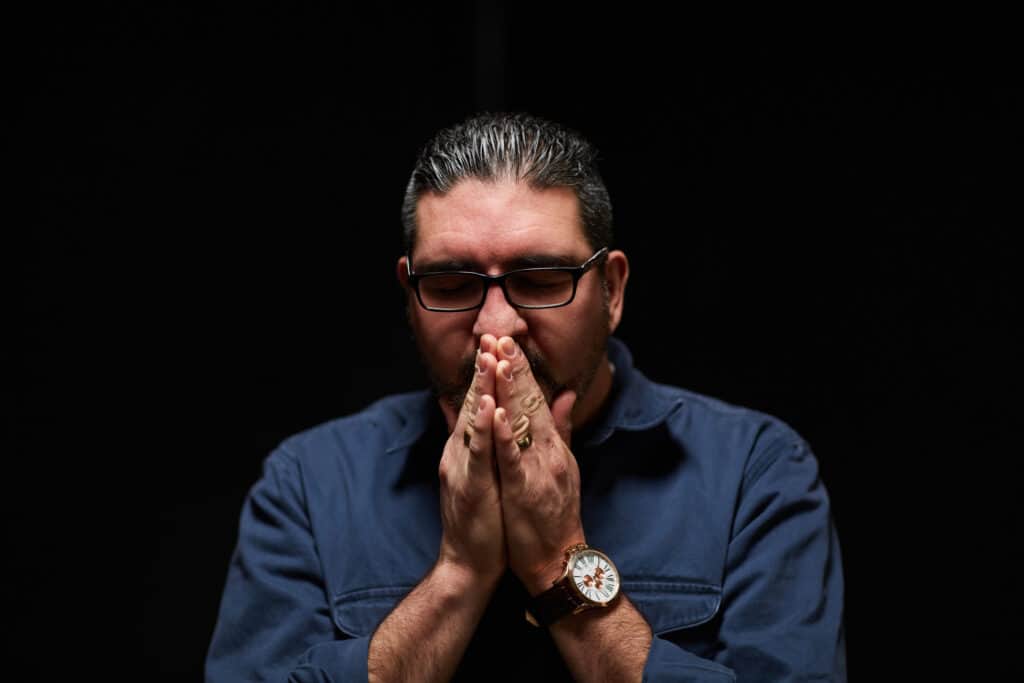
It’s not uncommon to wonder if God can truly forgive us. We’re all imperfect, sinful humans, after all. Sometimes, we make mistakes that cause us shame or deep regret. And then we might think, Can God really forgive me? I’m not even sure if I can forgive myself.
But He can and He will! God never refuses forgiveness to those who sincerely seek it. And the Bible makes it clear that God wants us to know His forgiveness and grace (Isaiah 30:18). It’s a powerful way we can encounter His limitless love.
When Jesus Christ gave His life on the cross, God showed us how infinitely valuable we are in His eyes. There is no higher price that could’ve been paid. He freely offers His forgiveness and His guidance.
It almost sounds too good to be true, right? So let’s look at how the Bible addresses the following:
- How do we know God will forgive?
- Is there anything God won’t forgive?
- What does repentance really mean?
- How can God’s forgiveness change our lives?
We’ll start by looking at the Bible’s answer to the question that brought you here.
How do we know God will forgive?

There are plenty of passages that affirm God’s willingness to forgive, such as:
If we confess our sins, He is faithful and righteous, so that He will forgive us our sins and cleanse us from all unrighteousness
1 John 1:9, NASB
He forgives all your iniquity; He heals all your diseases
Psalm 103:3, CSB
And all throughout the Bible, we see how God wants us to learn, grow, live, and love. He doesn’t want us to suffer needlessly. He’s a God of healing (Isaiah 57:15–19), a God of mercy (Hosea 6:6), and a God of reconciliation (2 Corinthians 5:19).
Think about the people you love. You want to keep them in your life, right? Barring extreme situations, you wouldn’t want shame or regret to be a reason they never want to face you again. And you wouldn’t want them to be constantly beating themselves up inside because of a bad mistake they made.
Sure, you’d want them to acknowledge their mistakes and express remorse for any pain or inconvenience they caused you. But after that, since you love them, you’d want them to move on so you can continue nurturing your relationship with them, right? And you’d want to see them grow from their experiences.
That represents just a sliver of the deep love God has for all His children. He longs to be close with us and relieve us of the burdens sin places on us (Matthew 11:28–30).
For every one of us, He has “plans for your well-being, not for disaster, to give you a future and a hope” (Jeremiah 29:11, CSB).
But despite all these verses, this question (Will God forgive me no matter what?) is likely one of the most common questions sitting in the back of many people’s minds—regardless of their beliefs or background.
Although it may not always be worded the same, the sentiment is there: Am I too bad to be forgiven? Is my past too messy to move on from?
Well, that’s what Satan wants us to think. He’d do anything to keep us from experiencing the love of God. But we can take comfort in knowing that “God proves His own love for us in that while we were still sinners, Christ died for us” (Romans 5:8, CSB).
That’s real love!
But because sin is offensive to God (Hebrews 1:9), it can cause us to be worried about how He views us as sinners. However, the divine truth is that while God hates sin more than anything, He loves sinners (so everyone!) more than anything (Jeremiah 31:3)!
No human being is excluded from His unconditional love.
But our sinful minds are relentless, aren’t they? Even while reading these wonderful truths, that inner critic still persists:
Sure, that’s what the Bible says…but if God really, truly knew the kinds of things I’ve done—let alone the things I’ve thought about—there’s no way He could love me like that.
Interestingly, the Bible says that God already does know these things. We read that “no creature is hidden from His sight, but all are naked and exposed to the eyes of Him to whom we must give account” (Hebrews 4:13, ESV).
And despite that—or actually, because of that—God sent Jesus Christ “to seek and to save that which was lost” (Luke 19:10, NKJV). When Jesus gave His own life to take our punishment, He revealed that there was no limit to how far He’d go to save us. In other words, God’s grace and forgiveness far outweigh any sin we could possibly commit (Romans 5:20).
So is there anything that could get in the way of God’s forgiveness?

The only sin God wouldn’t forgive would have to be one we refuse to confess.
That’s explained in Matthew 12:3–14, and it’s often referred to as the “unpardonable” or “unforgivable” sin. Jesus talks about this after the Pharisees approached Him with the intent to discredit Him. They were doing the very opposite of repentance.
They weren’t letting God into their hearts at all, therefore thwarting their own chances at forgiveness, reconciliation, and growth.
Learn more about what the “unforgivable sin” means.
And when you think about it, that’s only fair. God values freedom of choice, as true love can’t exist without it. So if someone chooses to close themselves off to forgiveness and won’t even acknowledge their wrongdoing, God respects that boundary.
The only other time the Bible addresses a condition for forgiveness is if we refuse to forgive a fellow human.
In Matthew 5, Jesus talks of a person preparing to offer a sacrifice on an altar to God. If that person had an unresolved conflict with someone they were close to, and it was within their power to make things right, that took priority over the sacrifice. He said, “Leave your gift there in front of the altar. First go and be reconciled with your brother or sister, then come and offer your gift” (verse 24, CSB).
And later on in Matthew 6, He reiterates this principle:
For if you forgive others their offenses, your heavenly Father will forgive you as well. But if you don’t forgive others, your Father will not forgive your offenses
Matthew 6:14–15, CSB
But these “conditions” need not deter us. Really, this is God showing us just how important forgiveness is to Him. If we refuse to forgive others, how can we truly accept God’s forgiveness?
This doesn’t mean we aren’t still hurt, or that we act as if the one who wronged us never did anything in the first place. But it shows that we understand forgiveness is not something earned or deserved. It’s a privilege, and it’s freely given in love.
Now that you’ve learned about God’s forgiveness, read about the process of forgiving others and how God can help.
What repentance truly means

As we just established, repentance paves the way for forgiveness. It involves acknowledgment, submission, and action.
“Repent” is a word used a lot in Christian conversations. And while it can be fairly easy to deduce its general meaning, we don’t often contemplate what it really means or what it looks like.
It might even be an uncomfortable term to think about. After all, it’s centered on our shortcomings and our sinful nature in contrast to a perfect, all-powerful God.
But that’s also a big part of the beauty of repentance. Looking at the original Hebrew translation, “repent” means “to return.”((https://www.brandeis.edu, “What Do Jews Mean by Repentance (Teshuvah)?” ))
So yes, repentance is a result of what stirs up within us when we are honest with ourselves about our sinfulness. We acknowledge our shortcomings and our inability to make ourselves better. In doing that, we submit to God’s love and His power.
And that’s how we “return” to Him!
Repentance is a gift (Acts 5:31). When we see the goodness of God, and what He’s done for us despite our sinfulness, we glimpse what true love looks like. We can run to Jesus, sinful and broken as we are, and be led toward repentance (Romans 2:4).
And when we ask for His help, He gives us the power to turn away from our vices and our temptations—the things that keep leading us into sin (Acts 3:26).
Then, by confessing and “returning” from our sins, we learn how to resist the things that would previously overcome us, and we learn how to replace them with good, positive, helpful things (Isaiah 1:16–17; Colossians 3:5–17).
This was the experience of David in the Bible. He was king and leader of the Israelites. He was the one who killed Goliath with just a stone and a sling because he relied on God’s guidance and strength. He was someone who trusted God and walked with Him day by day.
And yet, David—this man who consistently set out to follow and represent the goodness of God—fell into sin. And the consequences were quite sickening.
He committed adultery, possibly even rape. Then, when he found out he’d gotten this woman, Bathsheba, pregnant, he had her husband killed to cover up this heinous act.
There’s no way to gloss over that situation. His sin not only affected himself but the lives of at least two innocent people. And in ways that could never be made right.
The Bible says straight out, “The LORD considered what David had done to be evil” (2 Samuel 11:27, CSB).
So what did God do?
He went to seek out and save this lost sheep.
To do this, He sent a prophet to approach David and call him out for what he did (2 Samuel 12:1–15).
Just imagine what was happening inside David’s mind after this. While the extent will vary, we can all relate to a moment when we realized we’d done something regrettable. That heavy drop felt in the pit of the stomach. That paralyzing feeling of inescapable distress and defeat. We’re exposed.
And that’s where God steps in.
Through God’s mercy and patience, David was able to fully recognize the pain and anguish he caused God and others. He became fully aware of the weight of his sin.
But he didn’t stay in that state of guilt and shame. God called him out of it! So David “returned” to God, experiencing repentance. And by confessing his sin, he was forgiven. This was how his prayer began:
Have mercy upon me, O God, according to Your lovingkindness; according to the multitude of Your tender mercies, blot out my transgressions. Wash me thoroughly from my iniquity, and cleanse me from my sin. For I acknowledge my transgressions, and my sin is always before me
Psalm 51:1–3, NKJV
David acknowledged his sins and also God’s mercy. And he asked for help from the only one who is able to provide it.
Then he drew the prayer to a close with the powerful words, “Create in me a clean heart, O God, and renew a right spirit within me” (verses 10, ESV).
Then David was a changed man. He dealt with the consequences his sins brought upon his life, and as far as Scripture documents, he didn’t have any more affairs. He also rejoined the battlefield with his soldiers, rather than staying home and leaving the fighting to others, like he’d been doing when he first saw Bathsheba (2 Samuel 11:1).
How can God’s forgiveness change my life?

Even in our complicated lives today, God’s forgiveness can lift us out of the darkest of times (Psalm 103:4) and lead us forward in ways we might never have imagined (Psalm 37:4).
When King David experienced repentance and forgiveness, he couldn’t help but share it. He would sing about God’s righteousness. He would teach people about the goodness of God (Psalm 51:13), encouraging everyone to experience repentance and forgiveness—to “taste and see that the LORD is good” (Psalm 34:8, NKJV)!
When we begin living our new lives in Christ (2 Corinthians 5:17), we accept His invitation to unload all our “anxieties on Him, because He cares” for us (1 Peter 5:7, ESV).
God forgives us so our lives can be transformed, not hindered.
No longer are we slaves to sin (Romans 6:6), but we become children of God who reflect His perfect love. When we listen to the guidance of the Holy Spirit, the righteousness of God can show through us.
And as we experience God’s transformative power, others may very well take notice. Our very lives can be witnesses for Him.
The Lord God is “compassionate and gracious, slow to anger, and abounding in lovingkindness and truth” (Exodus 34:6, NASB). He sees the public and private habits of our lives. As twisted and broken as our lives may be, He delights to provide forgiveness through His Son, Jesus Christ.
In place of our shame and guilt of sin, our Lord Jesus offers us rest (Matthew 11:28) and “perfect peace” as our minds are “stayed on” Him (Isaiah 26:3, NKJV).
Yes, God will forgive you as you approach Him.
Yes, you can say goodbye to guilt and shame, and say hello to peace and grace.
Yes, you can say goodbye to the enslavement sin brings, and say hello to freedom, love, and righteousness. This is God’s desire for your life.
Intrigued by God’s love and grace? Learn more about Him and what it means to follow Him by starting your own personal online Bible study.